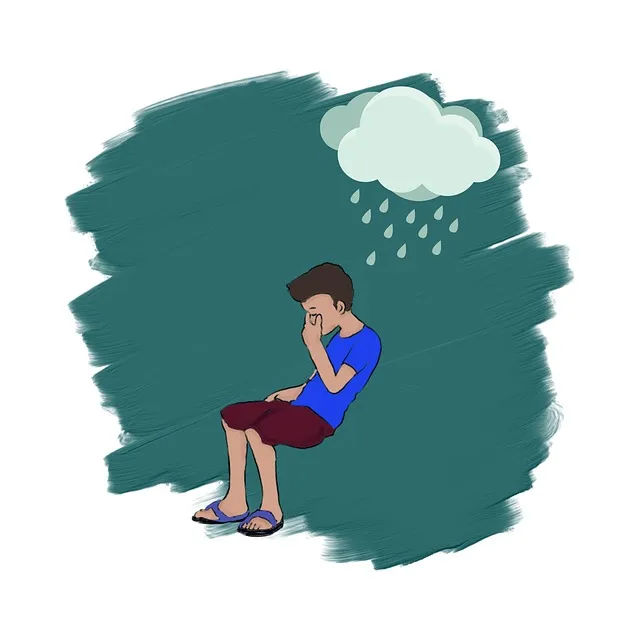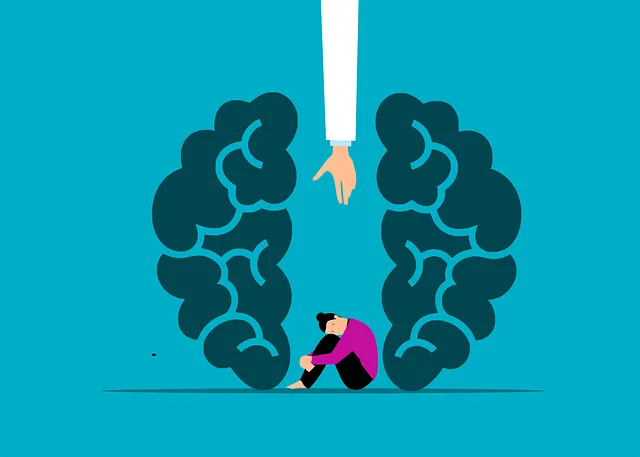The stigma surrounding mental illness acts as a significant barrier to care, especially in areas like Lone Tree where Kaiser Permanente offers expanded mental health services. This includes comprehensive coverage, cultural competency training, and public awareness campaigns. To destigmatize mental health issues, Lone Tree Kaiser Permanente leverages multi-faceted strategies such as Emotional Well-being Promotion, peer support groups, community outreach, and educational programs that encourage open conversations about mental well-being, ultimately improving access to quality care.
Mental illness stigma remains a significant barrier to accessing quality mental healthcare. This article explores comprehensive strategies to reduce this stigma, focusing on the successful efforts of Lone Tree Kaiser Permanente in expanding mental health services. We delve into understanding the impact of stigma on care-seeking behaviors and present effective approaches, emphasizing community engagement and education as powerful tools. By learning from innovative models like Lone Tree Kaiser Permanente’s mental health coverage expansion, we can foster a more inclusive society that supports individuals’ mental well-being without judgment.
- Understanding Stigma and Its Impact on Mental Health Care Access
- Lone Tree Kaiser Permanente's Role in Expanding Mental Health Services
- Strategies for Effective Stigma Reduction: A Comprehensive Approach
- Community Engagement and Education: Breaking Down Barriers Together
Understanding Stigma and Its Impact on Mental Health Care Access

Stigma surrounding mental illness can have severe consequences on an individual’s ability to access essential healthcare services. Often, individuals struggling with conditions like anxiety or stress face significant barriers due to societal perceptions and misconceptions. This stigma might lead them to conceal their symptoms, delay seeking help, or even avoid treatment altogether, ultimately exacerbating their condition. For instance, someone experiencing anxiety may be reluctant to reach out for assistance, fearing judgment or stereotypes associated with mental health issues, particularly when considering options like Lone Tree Kaiser Permanente mental health coverage.
The impact of stigma can be profound, especially in a society where self-care practices and stress management are increasingly recognized as vital components of overall well-being. It discourages open conversations about mental health, making it challenging for people to find the support they need. By reducing stigma, we can create an environment that encourages individuals to prioritize their mental health, seek appropriate treatment, and manage conditions like anxiety effectively, ultimately improving access to quality care, including that offered by Lone Tree Kaiser Permanente.
Lone Tree Kaiser Permanente's Role in Expanding Mental Health Services

Lone Tree Kaiser Permanente has emerged as a prominent figure in the fight against mental illness stigma by significantly expanding its mental health services. This healthcare provider recognizes the profound impact of stigma on individuals seeking support and has taken decisive steps to create a more inclusive environment. They offer a comprehensive range of mental health coverage, ensuring accessibility to various treatment options, including therapy, counseling, and medication management. By doing so, Lone Tree Kaiser Permanente aims to destigmatize mental health issues and encourage individuals to prioritize their well-being.
Moreover, the organization prioritizes cultural competency training for its staff, fostering an environment where patients from diverse backgrounds feel understood and respected. This training empowers healthcare providers to offer tailored care, addressing unique cultural perspectives on mental health. Additionally, Lone Tree Kaiser Permanente contributes to public awareness campaigns development, sharing valuable resources and knowledge to educate the community about mental illness, self-esteem improvement strategies, and available support systems. Such initiatives are pivotal in reducing stigma and promoting a healthier, more supportive society.
Strategies for Effective Stigma Reduction: A Comprehensive Approach

Reducing mental illness stigma requires a comprehensive approach that addresses societal perceptions and fosters understanding. Lone Tree Kaiser Permanente’s mental health coverage plays a pivotal role in this effort by providing accessible resources for care. Educational initiatives targeting both the general public and at-risk communities are essential, utilizing tools like Emotional Well-being Promotion Techniques and Self-Awareness Exercises to dispel myths and promote empathy.
Community outreach programs, peer support groups, and media campaigns can further enhance these efforts. By integrating Self-Esteem Improvement strategies into these initiatives, individuals struggling with mental health issues can gain the confidence to seek help without fear of judgment. This multifaceted approach ensures that stigma reduction remains a priority, ultimately creating a more supportive environment for those dealing with mental illness.
Community Engagement and Education: Breaking Down Barriers Together

In the fight against mental illness stigma, community engagement and education play a pivotal role in fostering understanding and acceptance. By bringing people together, organizations like Lone Tree Kaiser Permanente are making strides in enhancing mental health coverage and accessibility. Through various initiatives, they offer platforms for open conversations about mental well-being, targeting misconceptions and promoting early intervention. These efforts ensure that individuals facing challenges receive the support they need without fear of judgment.
Community events, workshops, and educational programs, such as Stress Management Workshops Organization and Social Skills Training sessions, empower members to recognize and address mental health concerns in their surroundings. By integrating these activities into community life, barriers are broken down, fostering a culture where conversations about mental illness are as common and accepted as discussions about physical health. This collective approach, emphasized by Lone Tree Kaiser Permanente’s initiatives, is crucial in the ongoing journey towards destigmatization.
Mental illness stigma reduction is a multifaceted effort that, when successful, can significantly improve access to mental healthcare. Organizations like Lone Tree Kaiser Permanente play a pivotal role in expanding services and fostering inclusive environments. By employing comprehensive strategies that include community engagement and education, we can break down barriers and create a more supportive society for those facing mental health challenges. This collective approach ensures that everyone has the opportunity to seek help without fear of judgment, ultimately enhancing overall well-being.



